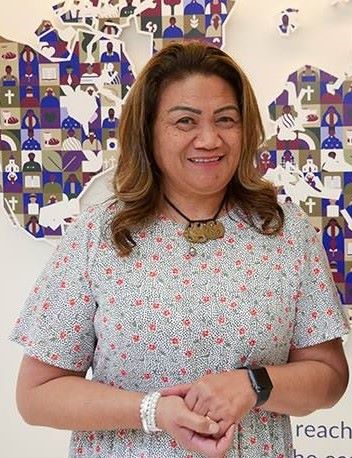Hera Clarke is the Commissary for the Archbishops and her brief is reconciliation and restoration for those affected by abuse.
WATCH here Virtual Theology Chat Thursday 17 October 7pm-8pm
https://www.youtube.com/watch?v=j_dGr4KgvEsAll welcome to Zoom

As the Royal Commission comes to a close in mid 2023, our Church has called on the expertise of Hera Clarke, who is a Māori Anglican social services leader and former member of the Crown Response Unit for historical claims, who has coordinated redress for hundreds of survivors of abuse in state care.
“The Archbishops have asked me to look at ways of standing this work up for the Church, and to see what a redress process for survivors of abuse in the Anglican Church will look like.” said Hera Clarke today.
“They want the Church redress process to be survivor-led and trauma-informed with a pastoral focus instead of a transactional approach.”
Hera believes that a well-designed approach to redress has the potential for genuine reconciliation and to act as a sign of hope for survivors who wish to reengage with the church.
Hera Clarke will now act on behalf of the Anglican Church in Aotearoa, New Zealand and Polynesia, to help develop a church-wide Anglican strategy for holistic redress, and to lead this Church’s contributions to the planned independent redress body that will be set up for Aotearoa New Zealand as a whole.
Going forward, the Archbishops’ statement to the Royal Commission identified the need for this Church to take action on a number of issues to improve our safeguarding across the motu, saying that we need to:
– Create a database of information about our leaders with a centralised entity for information management, to place greater scrutiny on training, selection, monitoring and capability.
– Raise the bar on the standards we apply in discernment processes for new ministers, including regular compliance with safety training
– Create a culture that places safeguarding and listening to disclosures of abuse at the highest priority so that this Church creates a “united wall” against abuse.
– Create a list of suitable counsellors who can provide pastoral care for people who make a disclosure of abuse and for respondents
– Create a holistic redress response that takes into account our Gospel values and mātauranga Māori
“A redress system that takes mātauranga seriously, and incorporates all the taonga that a person is entitled to, including whakapono and wairuatanga, is necessary if that redress is to be holistic and effective.” said Archbishop Don at the final hearing of the faith-based section of the Royal Commission of Inquiry last Thursday 20 October.
“Survivors have told us that they don’t want to merely survive. They want to be healed, and to know what it is to live and flourish.”
from
Leaders call for a Sea Change on Abuse https://www.anglicantaonga.org.nz/news/general_synod/royalcomm22


